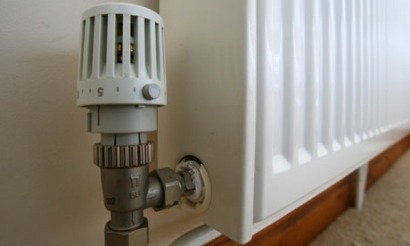
Currently, over 95% of heat in the UK is produced by burning fossil fuel. As a result, around half of the UK’s carbon emissions come from the energy used to produce heat, exceeding emissions from electricity generation.
With North Sea supplies now in decline leading to an increase in imports, and the need for the Uk to curb its greenhouse gas emissions, low carbon alternatives are needed to meet the UK’s heating requirements.
The Government has therefore designed the Renewable Heat Incentive: a £86-million scheme which is expected to increase green capital investment by £4.5 billion up to 2020, stimulating a new market in renewable heat. “The new financial incentive will encourage installation of equipment like renewable heat pumps, biomass boilers and solar thermal panels to reduce emissions and support the existing 150,000 jobs in the heating industry,” says DECC. “RHI will reduce emissions by 44 million tonnes of carbon to 2020, equivalent to the annual carbon emitted by 20 typical new gas power stations.”
Support for business
According to the Chris Huhne’s Department of Energy and Climate Change (DECC), the RHI tariff scheme will increase industrial, commercial and public sector renewable heat installations by seven times to 2020.
Although the scheme is still pending approval by Parliament, DECC are confident that it will stand alongside the Renewables Obligation and Feed in Tariff scheme “to send a strong signal of support to the renewables sector”. “By 2020 we estimate that the renewable heat sector will have grown to include around 13,000 installations in industry [and] 110,000 installations in the commercial and public sector, supplying 25% of the heat demand in these sectors,” said the government department.
Anything from a pub to a public library, a school to a power plant will be eligible under the RHI to install technologies like biomass boilers, heat pumps and solar thermal. Community projects will also be eligible, provided a single installation is providing heat to more than one house. The tariffs will be paid for 20 years to eligible technologies that have installed since 15 July 2009 with payments being made for each kWh of renewable heat which is produced.
A table breaking down the available tariffs is provided here, showing a range of rates from 1.9 pence/kWh for small and medium-sized biomass systems to 8.5 pence/kWh for solar thermal systems. Once in the scheme the level of support an installation will receive is fixed and adjusted annually with inflation. However, as with feed in tariffs, the levels of support available for new entrants to the RHI scheme will decrease over time as the costs of the equipment and installation reduce through economies of scale.
25,000 households to benefit this year alone
On the domestic side, a full system of RHI payments will be available to households from October 2012, and in the interim, more than a quarter of the first year’s RHI budget will be guaranteed for up to 25,000 household installations through a “RHI Premium Payment” to encourage take-up alongside the Green Deal from 2012. Those taking up the Premium will then be eligible for a RHI tariff from October next year when the Green Deal begins, as will anyone else who has had eligible equipment installed from July 2009. For new build homes, an RHI tariff will be considered for the 2012 phase.
DECC anticipates that RHI Premium Payments will range from £300/unit for solar thermal systems up to £1,250/unit for ground source heat pumps.
“The RHI Premium Payment will be worth around £15 million and will ensure there is a fair spread of technologies across all regions of Great Britain,” DECC explains. The installed technologies will be monitored to enable government, manufacturers, installers and consumers to better understand how to make sure householders get the most out of them.
According to DECC, a key focus of this initial phase will be on people living off the gas grid, where fossil fuels like heating oil are both more expensive and have a higher carbon content. “Renewable heat is a largely untapped resource and an important new green industry of the future. This incentive is the first of its kind in the world. It’ll help the UK shift away from fossil fuel, reducing carbon emissions and encouraging innovation, jobs and growth in new advanced technologies,” commented Chris Huhne.
For additional information:

